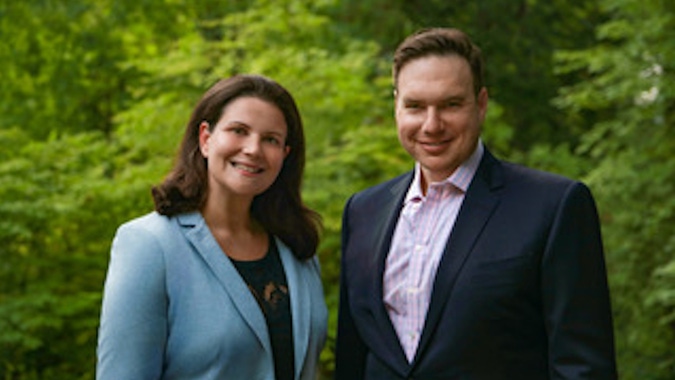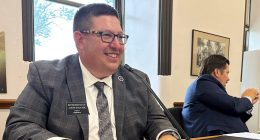Opinions expressed by Entrepreneur contributors are their own.
When Bakst and Weinstein first launched WCPG, their goal was to set up a business focused on impact by serving as an agency to brands looking for counsel and execution for purpose baked into partnerships. But the notion that an agency would regularly be retained by a brand to advise and execute impact partnerships was a novel concept in 2010.

Harrie Bakst and Sara Weinstein
Eleven years after WCPG’s launch, a brand’s purpose is more important than ever. Bakst and Weinstein were ahead of their time in the evolving world of purpose-led businesses. Time and shifting societal attitudes have supported their thinking and has led to explosive growth both in their impact and the bottom-line of their company.
Related: Listen to All the How Success Happens Podcasts!
In their early days, WCPG was quick to recognize that some of the world’s biggest charities had strong development teams, but were only approaching a brand’s philanthropic offices for partnerships. Bakst and Weinstein examined this issue and began asking, What if we could enroll the entire company in these philanthropic efforts and align the full resources of various departments in philanthropy? As Bakst recalls, “We knew that if we packaged our clients with tangible assets, charities could enter into business partnerships with companies that were funded not only by the philanthropic arm, but by public relations, marketing and various key stakeholders in the company. Our early success had a lot to do with identifying these 360-degree partnerships and working hand-in-hand with some visionary partners to achieve their goals.”
Cancer survivor Bakst had a long-term relationship with Memorial Sloan Kettering Cancer Center and saw an opportunity for them to create a robust partnership program for their signature fundraising campaign Cycle For Survival. Bakst went out to the marketplace with this idea and brokered major sponsorships with Smart Water, New Balance and Tag Heuer. But these weren’t deals built on charity alone; they had marketing returns for the corporate partners. For example, with Tag Heuer, WCPG helped create the Tag Heuer Challenge where the brands’ ambassadors such as Tom Brady, Patrick Dempsey, among others encouraged their fans to donate to the cause in a social media campaign.
These early case studies served as the spark to light the flame for WCPG’s growing client list which at the time included organizations such as Sean Penn’s CORE, Nick Jonas’ Beyond Type 1, The White Ribbon Alliance and others.
Related: 4 Trends In Fundraising That Will Impact the Future of Philanthropy
But to grow the business, they wanted to offer similar partnership services, but this time to brands. First, Bakst and Weinstein had to find a Fortune 500 partner who would value their deep understanding of corporate goals and best-in-class charitable giving. Recognizing they were in a unique position, they tested their theory in 2015 with their first big brand partner, Revlon.
Revlon came to WCPG wanting to create a new way to excite their giving efforts around women’s health. Instead of working with a single charity, Weinstein suggested that they work with them all. Weinstein collaborated with Robert Wolfe, founder of CrowdRise, and now WCPG Advisor, to create the Revlon LOVE IS ON Million Dollar Challenge. The groundbreaking competition invited women’s health charities to fundraise to support their own missions and offered a top prize of $1 million to the charity who raised the most, as well as other financial prizes for other charities who competed or met overall goals.
“All of a sudden Revlon had charities across the country activating their massive networks in support of this effort, all while organically marketing Revlon,” Weinstein said. “And for an additional earned media moment, the effort concluded every year with a press event with Revlon ambassadors, including Olivia Wilde and Halle Berry, presenting donations to the charities.” This effort was so special because Revlon was able to take their initial monetary gift and leverage it to help women’s health charities raise over $11 million in just two years.
Another big moment came for WCPG, when Unilever launched their first social impact brand, The Right To Shower, a range of head-to-toe soap products that donates proceeds from sales to fund mobile shower trucks across the US that help people experiencing homelessness. Despite having the normal roster of agencies on retainer, WCPG was brought on to create and execute their national and regional purpose-led partnership strategy. In December 2019, WCPG ideated and vetted multiple partnerships for the brand, including the World’s Big Sleep Out with Will Smith, Helen Mirren and Chris Martin — an event in which people slept out in unison in backyards, hometowns and iconic locations across the globe to create the world’s largest display of solidarity with and support of those experiencing homelessness and displacement.
Now with offices in New York and LA, hundreds of millions of dollars raised for charities and countless brand deals, what’s next for WCPG? Weinstein says, “Our plan is to continue to be good partners, surround ourselves with smart people and to believe in the power of our work to make a difference.” She added, “And to accelerate our growth in a major way.”
Related: Does It Matter What Motivates Business Philanthropy?









